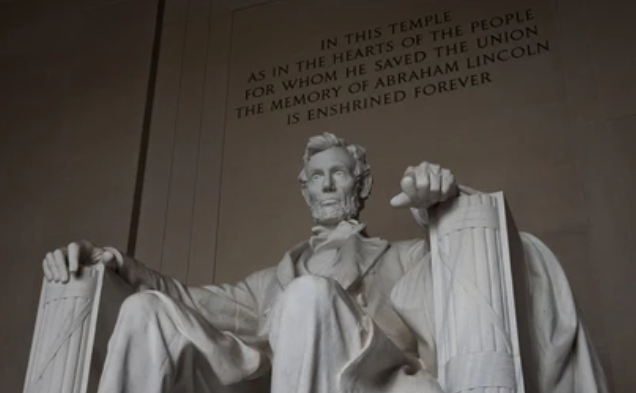The question “Was Abraham Lincoln Black?” has intrigued many and sparked countless discussions over the years. This article aims to delve into the origins of this rumor, explore Abraham Lincoln’s ancestry, and analyze the historical context to uncover the truth. While the idea may seem surprising to some, it has persisted in popular culture and warrants a thorough investigation. Through a detailed exploration of historical records, personal testimonies, and the social climate of Lincoln’s era, we will seek to separate fact from fiction.
Read Also : Abraham Lincoln’s Assassination (1865): A Tragedy That Shook a Nation
Introduction: The Origin and Spread of the Rumor
The rumor that Abraham Lincoln might have been Black has been around for more than a century. Understanding how and why such a rumor began is key to unraveling the layers of history that have clouded the true identity of one of America’s most iconic presidents. In this section, we will explore how the rumor started, how it spread, and the public’s reaction over time. This exploration will provide a foundation for understanding why this rumor continues to intrigue and why it has persisted for so long despite the lack of concrete evidence.
Early Mentions of Lincoln’s Alleged Ethnicity
The first mentions of Abraham Lincoln’s alleged Black ancestry can be traced back to the early 20th century. During this period, various publications and individuals began to speculate about Lincoln’s heritage, often based on his physical appearance and certain ambiguous comments made by his contemporaries. These early whispers were not widely accepted or circulated but laid the groundwork for future speculation.
One of the primary sources of this speculation was the belief that Lincoln’s darker complexion and coarse hair could be evidence of mixed-race ancestry. In the racially charged atmosphere of the United States during the early 1900s, any deviation from the typical European appearance could lead to questions about one’s racial background. Although there was no substantial evidence to support these claims, they were enough to fuel public curiosity and further the spread of the rumor.
As the rumor gained momentum, it was picked up by various fringe groups and publications. These groups often had their own agendas, using the rumor to either tarnish or elevate Lincoln’s legacy depending on their perspective. The lack of clear historical documentation on Lincoln’s ancestry only added to the mystery, allowing the rumor to persist. By the mid-20th century, the rumor had become more widely known, particularly among groups interested in revisiting or rewriting historical narratives.
How the Rumor Gained Traction Over Time
Over the decades, the rumor about Lincoln’s ethnicity continued to grow, spurred on by various social and political movements. In particular, the Civil Rights Movement of the 1960s reignited interest in the racial identities of historical figures. As African Americans sought to reclaim their history and recognize the contributions of Black individuals to American society, some looked to figures like Lincoln, who had played a key role in ending slavery, and speculated about the possibility of his own mixed heritage.
The advent of the internet in the late 20th and early 21st centuries further amplified the spread of this rumor. Online forums, blogs, and social media platforms became fertile ground for the sharing and propagation of alternative historical theories, including the idea that Abraham Lincoln might have been Black. Without the rigorous fact-checking that often accompanies academic work, these platforms allowed the rumor to take on a life of its own, reaching a global audience.
Moreover, popular culture has played a role in keeping the rumor alive. Books, documentaries, and even fictional works have occasionally referenced the idea, often more as a provocative “what if” scenario rather than a serious historical claim. Nonetheless, each mention contributes to the rumor’s persistence in the public consciousness, making it a topic of occasional debate and discussion.
Public Reactions: From Curiosity to Controversy
Public reactions to the rumor that Abraham Lincoln might have been Black have varied widely over time. In the early days, the idea was mostly met with curiosity, as people were intrigued by the possibility but unsure of its credibility. Some saw it as a fascinating twist in the story of a president who had already achieved near-mythical status in American history.
As the rumor spread, however, it began to stir more controversy. For some, the idea challenged deeply held beliefs about Lincoln and the narrative of American history. In a country where race has always been a contentious issue, the suggestion that one of the nation’s most revered leaders could have been of mixed race was seen by some as either a threat or a validation of their views.
In recent years, the reaction to the rumor has been more measured. Historians and scholars have largely dismissed it due to the lack of credible evidence, but it remains a topic of interest for those exploring the intersections of race, history, and identity. For some, the rumor is less about Lincoln’s actual ancestry and more about what it represents—a challenge to conventional narratives and an opportunity to reconsider how history is remembered and told.
Abraham Lincoln’s Background and Family Tree
To truly understand whether there is any basis to the rumor that Abraham Lincoln was Black, it is essential to delve into his background and family tree. By examining Lincoln’s ancestry, birthplace, and the influences that shaped him, we can better assess the credibility of the claims made about his racial identity.
Lincoln’s Ancestry: A Detailed Look at His Family Tree
Abraham Lincoln’s ancestry is well-documented, with his family tree tracing back to England and the early settlers of America. His paternal lineage, the Lincolns, were of English descent, having settled in Massachusetts in the 1600s. Over the generations, the family moved westward, eventually establishing roots in Kentucky, where Abraham Lincoln was born.
Lincoln’s mother, Nancy Hanks, also came from English stock, though her family’s history is less well-documented than the Lincolns’. Despite some gaps in the record, there is no credible evidence to suggest that either of Lincoln’s parents were of African or mixed-race descent. The Hanks and Lincoln families were typical of the white, Anglo-Saxon Protestant settlers who populated the American frontier during that period.
Given this background, the claims that Lincoln might have been Black seem unfounded when looking solely at genealogical evidence. However, genealogies can be incomplete or misleading, and it is necessary to consider other aspects of Lincoln’s identity before drawing any definitive conclusions.
The Significance of Lincoln’s Birthplace and Heritage
Abraham Lincoln was born in a log cabin in Hardin County, Kentucky, on February 12, 1809. This frontier setting, coupled with his humble beginnings, played a significant role in shaping the man who would later become the 16th President of the United States. Lincoln’s early life was marked by hardship, including the death of his mother when he was just nine years old and the constant struggle to survive on the frontier.
Lincoln’s heritage and upbringing in a predominantly white, rural community further complicate the notion that he might have been of mixed race. Kentucky was a slave state at the time, and the racial divisions were stark and rigidly enforced. It is unlikely that a person of mixed race would have been able to live freely or integrate into the community as Lincoln and his family did.
Nevertheless, some have argued that Lincoln’s humble origins and connection to the common people could explain why the rumor of his mixed heritage has persisted. The idea that someone of such modest means could rise to the highest office in the land resonates deeply with the American ethos of self-made success, regardless of race.
Influences from Lincoln’s Parents and Relatives
Lincoln’s parents, Thomas Lincoln and Nancy Hanks, were central figures in his early development. Thomas Lincoln was a farmer and carpenter, known for his physical strength and straightforward demeanor. Nancy Hanks, on the other hand, was remembered as gentle and kind, with a deep religious faith that she instilled in her son.
While there is no credible evidence to suggest that either of Lincoln’s parents were of mixed race, their influence on his character was profound. Thomas Lincoln’s work ethic and Nancy Hanks’s compassion shaped the values that would guide Abraham Lincoln throughout his life. These qualities were instrumental in his success as a lawyer, politician, and eventually president.
Some proponents of the rumor have suggested that Lincoln’s empathy and commitment to justice—qualities often associated with the abolition of slavery—might hint at a deeper, personal connection to the issue of race. However, these traits can just as easily be attributed to his upbringing and personal experiences, rather than any hidden racial identity.
Examining the Physical Characteristics of Abraham Lincoln
The physical appearance of Abraham Lincoln has often been a focal point in discussions about his racial identity. Historical descriptions, portraits, and even medical analyses have been used to speculate about whether Lincoln might have been of mixed race. In this section, we will explore these aspects in detail to better understand how they have contributed to the rumor.
Historical Descriptions: What Did Lincoln Look Like?
Abraham Lincoln was known for his distinctive appearance, which set him apart from many of his contemporaries. He was exceptionally tall, standing at 6 feet 4 inches, and had a lean, almost gaunt frame. His face was characterized by deep-set eyes, prominent cheekbones, and a strong jawline, all of which contributed to his memorable visage.
Contemporary descriptions of Lincoln often noted his unusual looks, with some even describing him as “homely” or “awkward.” His skin tone was often described as dark or sallow, which some have interpreted as evidence of African ancestry. However, these descriptions are more likely reflective of his outdoor lifestyle and the harsh conditions of the frontier, which would have exposed him to the elements and contributed to a weathered appearance.
Despite these physical characteristics, there is no credible evidence from his contemporaries to suggest that Lincoln was anything other than white. While his appearance may have been striking, it was not necessarily indicative of mixed-race heritage, and any conclusions drawn from it should be considered speculative at best.
The Role of Portraits, Photographs, and Art in Perception
Portraits, photographs, and artistic representations of Abraham Lincoln have also played a significant role in shaping public perception of his racial identity. The advent of photography during Lincoln’s lifetime meant that his image was widely disseminated, making him one of the most visually recognizable figures of his era.
These images, however, were often subject to the limitations and biases of the time. Early photography could exaggerate or obscure certain features, depending on the lighting, exposure, and skill of the photographer. Artistic representations, too, were influenced by the cultural and aesthetic preferences of the period, which could lead to idealized or altered depictions of Lincoln.
In some cases, these images have been used to support the claim that Lincoln had African ancestry. For example, certain portraits have been interpreted as highlighting features that some believe are characteristic of mixed-race individuals. However, these interpretations are highly subjective and often overlook the broader context of how images were produced and circulated in the 19th century.
Comparing Lincoln’s Features to Common Racial Stereotypes
Another aspect of the debate over Lincoln’s racial identity involves comparing his physical features to common racial stereotypes of the time. Some proponents of the rumor have pointed to specific traits—such as Lincoln’s coarse hair or prominent nose—as evidence of African ancestry. These comparisons, however, are fraught with the biases and inaccuracies that often accompany racial stereotyping.
Racial stereotypes in the 19th century were used to justify social hierarchies and maintain racial divisions. By associating certain physical traits with specific races, these stereotypes reinforced harmful assumptions about identity and worth. Applying these stereotypes to Lincoln’s appearance is not only misleading but also reflects the broader challenges of interpreting historical figures through a modern lens.
Moreover, the diversity of physical traits within any racial or ethnic group means that such comparisons are unlikely to yield definitive conclusions. Lincoln’s features, like those of any individual, were shaped by a combination of genetic factors, environmental influences, and personal experiences—none of which can be neatly categorized by race alone.
Conclusion: Separating Fact from Fiction
The rumor that Abraham Lincoln might have been Black is a fascinating example of how historical figures can be reinterpreted and reimagined over time. While it is clear that Lincoln’s ancestry was rooted in English and European heritage, the persistence of this rumor speaks to broader questions about race, identity, and the narratives we create around our leaders.
Through examining Lincoln’s background, physical characteristics, and the social context of his time, it becomes evident that there is no credible evidence to support the claim that Abraham Lincoln was Black. Instead, this rumor serves as a reminder of the complexities of history and the importance of critical examination in understanding the past.
By exploring these aspects in depth, we can better appreciate Abraham Lincoln’s legacy for what it truly was—a legacy built on principles of justice, equality, and unwavering commitment to the Union, rather than any hidden or undisclosed racial identity. As history continues to be scrutinized and revisited, it is essential to rely on evidence-based research to maintain the accuracy and integrity of our understanding of the past.
Frequently Asked Questions (FAQs)
1. Why did people believe that Abraham Lincoln was Black?
The belief that Abraham Lincoln might have been Black likely arose from a combination of factors, including his physical appearance, which some described as darker or more coarse than other white men of his time, and the lack of detailed genealogical records. Additionally, in a time of rigid racial divisions, any deviation from the typical European appearance could fuel speculation. Over time, this speculation was amplified by various fringe groups and alternative historical narratives, leading to the persistent rumor.
2. Is there any credible evidence that Lincoln was of African descent?
No, there is no credible evidence to suggest that Abraham Lincoln was of African descent. His ancestry has been traced back to English and European roots, and historical records indicate that both of his parents were white. While the rumor has persisted, it is largely based on speculation and misinterpretation of his physical features, rather than on solid historical evidence.
3. How has the rumor affected Lincoln’s legacy?
The rumor that Abraham Lincoln might have been Black has added an interesting dimension to discussions about his legacy, particularly in the context of race relations in America. While it has not significantly altered the mainstream understanding of Lincoln’s life and achievements, it has sparked conversations about how history is remembered and the role of race in shaping public perceptions. For some, the rumor represents a challenge to conventional narratives and an opportunity to explore alternative perspectives on historical figures.
4. What was Abraham Lincoln’s stance on race and slavery?
Abraham Lincoln is best known for his role in ending slavery in the United States. As president, he issued the Emancipation Proclamation in 1863, which declared the freedom of all slaves in Confederate states. While Lincoln’s views on race were complex and evolved over time, he was a staunch opponent of slavery and believed in the fundamental equality of all men. His efforts to preserve the Union and abolish slavery have cemented his legacy as one of America’s greatest presidents.
5. Why is it important to explore and debunk historical myths like this one?
Exploring and debunking historical myths is crucial for maintaining the accuracy and integrity of our understanding of the past. Myths can distort historical facts, mislead public perception, and perpetuate misunderstandings about important figures and events. By critically examining and challenging these myths, historians and scholars can ensure that history is based on evidence and factual analysis, rather than on speculation and rumor. This, in turn, helps us learn more accurately from history and apply those lessons to the present and future.







1 comment